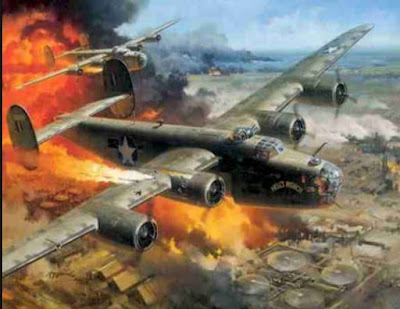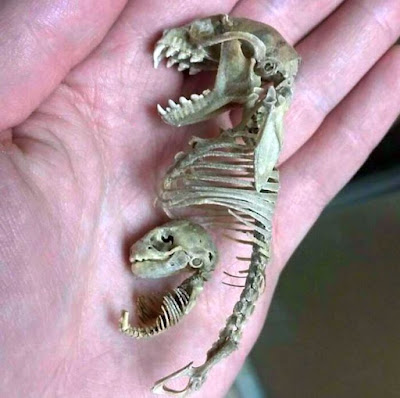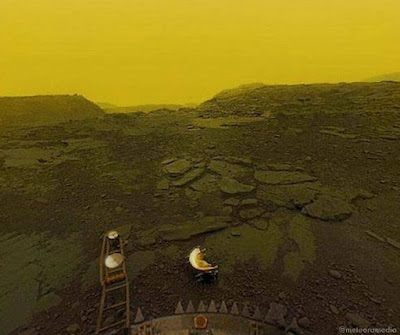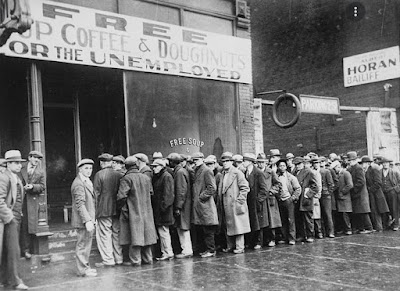As I often do on Memorial Day, I like to draw your attention to a
set of remarkable photos taken a few years ago by a reader (Katie) and her husband, who were formerly stationed in Germany. Katie learned that Don's uncle, Donald Sowers, who was killed in World War II, was buried in Ardennes American Cemetery in Liege, Belgium. She and her family visited the cemetery and sent these photos. (The entire collection can be seen
here. Go look at them. They're remarkable.)
Later, a reader named Kathy left the following moving comment on that
blog post I shared:
I searched for 2 years to find my mother's first husband Harold Norris, killed 4/4/44 @ 2:04 PM over Romania. I received a photo of his grave from Belgium and walked over to my mother's home and said, "Mom, where is Harold buried?" She said, "New Jersey". I said, "Mom, sit down, we need to talk."
Her mouth dropped open when she learned that her first husband was buried in Belgium! He has been there for (then) 65 years. All I started with was his purple heart, his name and service number. It has lead me down a path filled with new compassionate friends and a new understanding of the word sacrifice. Harold was an airman, navigator and top turret gunner. His plane the Miasis Dragon was shot down after delivering a fatal blow to an oil refinery in Bucharest Romania. The plane was hit at the waist by a land-to-air missile. The plane nose dipped, the pilot pulled it up, then it went nose-over-tail to the earth in a fireball. 4 crew were "carbonized" and were buried together in one grave by Romanian Monks. Later, in 1949, with dental records my mother provided, the US was able to locate his remains from the others and he was buried for the 9th and final time in Ardennes. The other 3 airmen are still together buried in the US.
One of the beautiful things I noticed was that each man's life is symbolized with a marble cross. They all worked and sacrificed as a group and from above, all of their individual crosses make up a larger cross. This collective larger cross can only be seen by people in airplanes and God. 3/5ths of the graves hold the remains from airmen who lost their lives....it is to those who fly that the larger cross is visible...a beautiful way to honor them.
The other thing I learned in 2010: the people of Belgium, France and other countries meet and honor our heroes. At Ardennes in 2010, there was approximately 100,000 people present, not many were from the USA. It seems that in life, we considered these men to belong to us, but in their death, the European people consider that these men belong to them, whom they thank and honor every year. Most graves have been adopted. Harold's grave was adopted many years ago and now the lady who adopted his grave is teaching her young grand daughter to care for it. She obviously does not want her grand daughter to forget the gratitude she has for the men who lost their lives saving hers.
I wrote to a man who was age 7 when the bombs were falling on to his town. He was scared and saw more than a 7-year-old should see. He remembers the American forces and he remembers liberation. For those who know what happened, who saw the cruelty and oppression, who had no hope, our US Military saved them, their children and their grand children. The maximum gift was given, freedom was restored at a great price, those receiving the gift are grateful....and other airmen and God can see their collective cross, a memorial for their sacrifice, from the air. This has put many things in perspective for me...I hope it will for you too. --Kathy
_______________________________
This is an essay Don wrote many years ago in tribute to his fallen uncle:
Forever Young
I don't know how he died, really. No one does, since everyone who was with him died at more or less the same time.
I'll bet he was afraid. I would have been.
It must have been hell on earth – above earth to be exact. A booming, banging, grinding, shaking, shattering horror. Especially it must have been tough on him, hanging as he was below the belly of a crippled plane, a bubble of glass exposed to the flak and the fire from enemy aircraft. A tasty and too-visible target.
His B-24 Liberator was powerful, true. But it was also lightly armored and easily damaged in combat. When damaged, the B-24 often lost the electrical power needed to rotate its gun turrets, and the gunners would have to hand-crank their turrets around, trying to follow the enemy planes.
Too slow. Too slow.
He was probably the youngest man on board. He was certainly the lowest-ranking member of the ten men who made up the crew. That first day of August in 1943, he'd only been in the Army Air Corp for a year and a half. He'd only been overseas for six months. He was 19 years old. He came from a farming family that lived in a very small town in Kansas. He had one sister, two brothers, and two very worried parents.
He was assigned to 98BG, a bomber group stationed out of Benghazi, Libya. His mission that day? In coordination with 178 bombers and 1,700 crew members, the 98BG was to attack and destroy the oil refineries at Ploesti, Romania. These facilities provided the Third Reich with one-third of its fuel … and the Nazis were very hungry for fuel in the waning days of 1943.
The oil refineries at Ploesti were protected with massive anti-aircraft batteries and hundreds of German and Romanian fighter planes. The distance traveled by the Allied bombers meant that no fighter protection could attend them. They were alone.
 |
| "Fire over Ploesti" by Roy Grinnell |
It was a tremendous undertaking, a gamble of men and machines desperately needed for the war effort. A 2,400 mile, eighteen hour trip there and back again, with only a half-hour of available time over the target.
And in the end, for over 500 airmen and 52 bombers, there was no going home.
They say he's buried at a cemetery near Liege, Belgium. Maybe he is, maybe he isn't. The records show that his B-24 was shot down over the refinery, but that it happened before the crew could disgorge the plane's 8000-pound payload of high explosives. And the B-24 Liberator was well known for burning merrily when it crashed.
But his name is on one of the white crosses standing in formation at the lovingly well-tended cemetery.
His parents back in Kansas received the medals that he was awarded posthumously at a ceremony, probably one of many such ceremonies on that same day. The medals were: a Distinguished Flying Cross, a Purple Heart, and the Air Medal with three oak leaf clusters.
Both his brothers eventually went to war as well. One went as another tail gunner, the other as a pilot. His younger sister stayed home, grieving for the older brother she would never see again on this side.
Eventually she married my father.
The parents, the brothers, and the sister passed away some time ago. There is now no one who can tell me anything more about Donald Phillip Sowers – Sargent, United States Army Air Corp. The uncle I never knew and whose name I share.
Donald Philip Sowers never woke to the face of his bride on the day after his wedding. He never paced the floor late at night singing softly to an infant daughter who just couldn't sleep. He never got to hold his child's hand the last time she needed, or wanted, help to cross a street. He never felt the aches and pains of a long life, well lived. And well loved.
But I will remember him and so will my children. If you've taken the time to read this, tip a glass in his name and remember him. And all the other lost brothers and sisters as well.
Think of the things he missed, for the things you have.
Donald Philip Sowers died fighting the greatest evil of our time – a young man of 19 who will never grow old.
_______________________________
A mighty "
thank you" to our past and present veterans, whose sacrifices too many of us are willing to overlook, dismiss, or forget.


















































